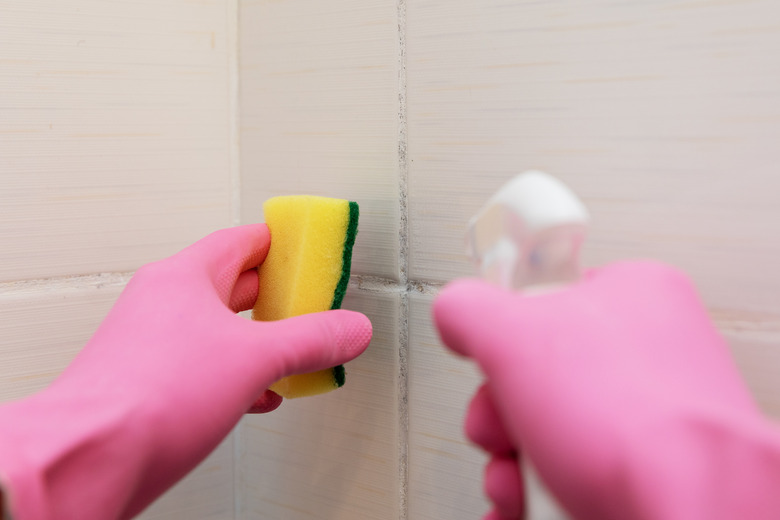Is Mildew Dangerous?
We may receive a commission on purchases made from links.
Is mildew dangerous, and should you be concerned if you see it growing in your home? You know mold can be toxic, but mildew can be confusing. Some people use the terms "mold" and "mildew" interchangeably even though there are differences. Knowing what you're dealing with and how dangerous it is helps you know how to proceed when you discover mildew.
Tip
Mildew generally isn't as dangerous as some types of mold, but it can cause minor health issues. These problems typically go away once you're no longer exposed to the mildew.
What Is Mildew?
What Is Mildew?
Both mold and mildew are fungi, but mildew has a different growth pattern than mold. It's flat and grows on moist surfaces. Mildew generally looks powdery or fluffy. It often starts off gray, white, or yellow and can turn brown or black. Like mold, mildew grows from microscopic spores that move through the air.
The spores need moisture to grow. Other ideal growing conditions for mildew include warmth, dim lighting, and poor air circulation. Mildew often grows on fabrics, wood, paper, tile grout, and other surfaces in humid or damp areas. You can also recognize mildew by its mild, musty odor.
Is Mildew Dangerous?
Is Mildew Dangerous?
Mildew can cause some mild health concerns in certain people depending on the exposure and preexisting conditions. It can also cause cosmetic issues inside your home. However, the effects of mildew are usually minor and aren't particularly dangerous in most situations. That doesn't mean you should ignore it, though. Cleaning up mildew quickly prevents those health and cosmetic issues in your home.
Mildew Health Concerns
Mildew Health Concerns
Mildew can cause some health issues, but they're usually minor and temporary. The most common symptoms you'll notice with mildew exposure are a headache, sore throat, or minor respiratory issues. These mildew issues happen if you inhale the mildew spores. If you have allergies or asthma, your reaction to mildew spores can be more severe than someone without those preexisting conditions.
The health effects of mildew and mold are more common with prolonged exposure. This usually happens when you don't realize you have mildew growing in your home, or you don't take care of it immediately when you discover the mildew growth.
Some toxic molds can cause more severe issues. They can affect your nervous system and cause memory loss or mood changes. Some molds can also cause general aches and pains, respiratory illness, eye irritation, and more severe health symptoms.
Mildew Home Damage
Mildew Home Damage
Unlike mold growth, which can go deep into the material on which it grows and cause damage, mildew only grows on the surface. That means mildew usually doesn't damage surfaces in your home. You can usually clean the surface and remove the mildew, so it doesn't have any long-term effects on the surface.
Cleaning Mildew in Your Home
Cleaning Mildew in Your Home
Major mold growth often requires professional mold remediation, but mildew growth is usually something you can handle yourself. Wearing a mask while you clean up the mildew can prevent you from breathing in the spores, which can minimize any health effects from the mildew. Put on cleaning gloves to protect yourself from the mildew and the cleaning solution you choose.
Using vinegar can be enough to clean most mildew. Use it at full strength for tough mildew. Another option on some surfaces, such as shower tiles, is bleach diluted with equal parts of water. Be careful that it doesn't get on your shower curtain or other items that could be damaged by bleach.
Whenever you use cleaning solutions, keep the room well ventilated. Never combine different types of cleaners. Many seemingly innocent chemical combinations can create toxic fumes that are dangerous or even deadly.
Preventing More Mildew
Preventing More Mildew
If mildew is a problem in your home, making changes to the environment can discourage future growth. Cleaning your home can minimize growth since dirt, greasy film from cooking, and other debris around your home can serve as a food source for the mildew spores.
Decrease moisture levels in your home, especially if the indoor humidity is high or you have water-leaking issues. Improving air circulation, repairing leaks, and running a dehumidifier can help dry out your home. Ventilation, exhaust fans, and open windows can improve air circulation.
